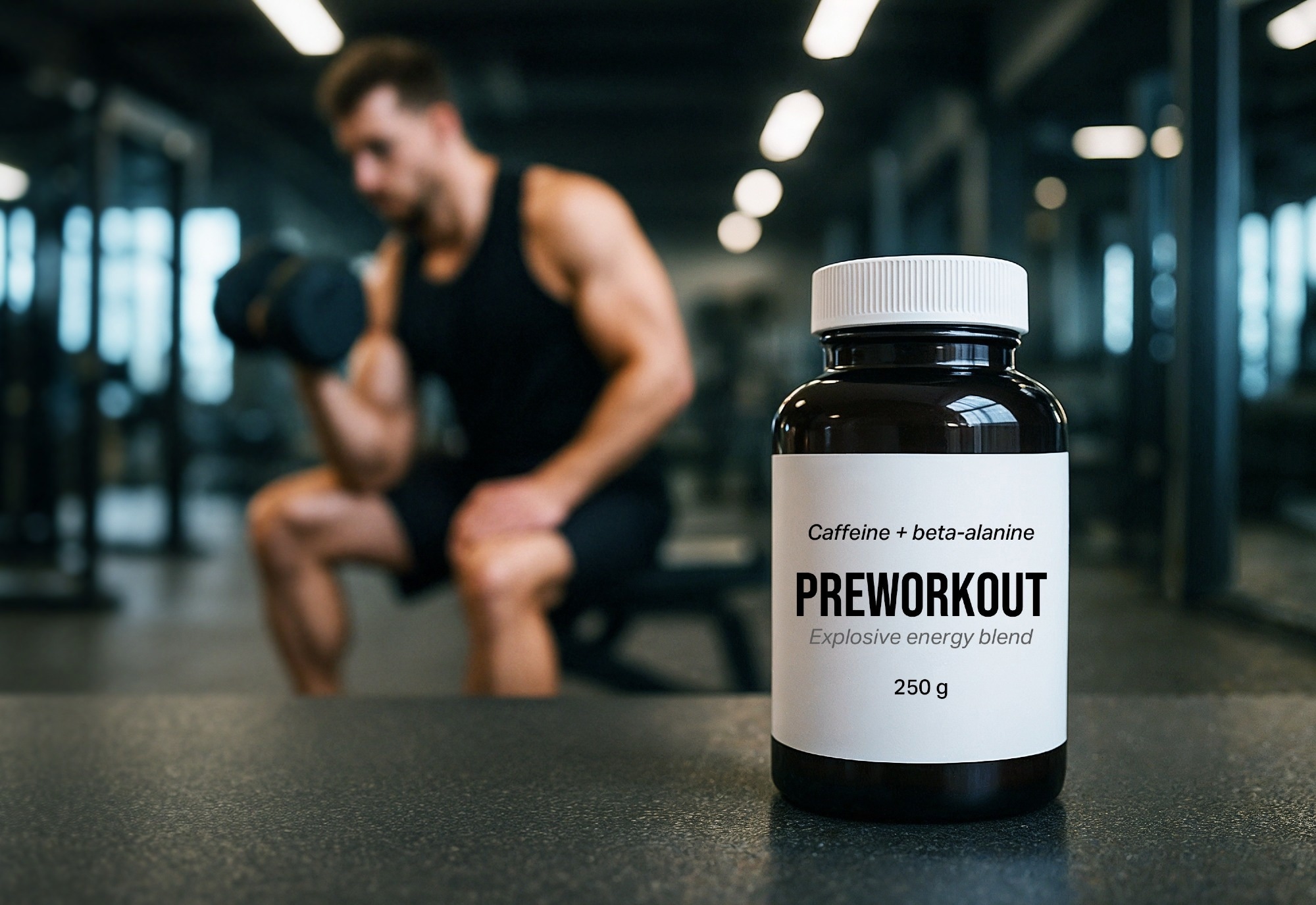Researchers have confirmed that a pre-workout dose of caffeine can measurably increase movement velocity and power output, especially in men and low-caffeine users, helping athletes fine-tune their training for maximum performance gains.
 Study: Effects of acute caffeine intake on muscular power during resistance exercise: a systematic review and meta-analysis. Image credit: Gabriele Paoletti/Shutterstock.com
Study: Effects of acute caffeine intake on muscular power during resistance exercise: a systematic review and meta-analysis. Image credit: Gabriele Paoletti/Shutterstock.com
In a recent systematic review and meta-analysis published in Frontiers in Nutrition, researchers investigated the specific effects of caffeine, a popular ergogenic aid, on muscular power and movement velocity during resistance training. The study synthesized outcomes from 12 peer-reviewed and carefully screened publications (n = 230 participants) and found that acute caffeine intake significantly improves mean movement velocity and power output during resistance exercises.
Analyses revealed that caffeine-induced benefits were most pronounced in men and in individuals who are not habitual, high-dose caffeine consumers. This suggests that caffeine supplements taken before or during workouts may enhance performance, particularly for those with low or moderate daily caffeine intake, rather than offering additional benefits to habitual high consumers.
Together, these findings validate caffeine's utility in resistance training, providing athletes and their trainers with a clearer picture of how to best leverage the ergogenic for power-based training.
Background
Resistance training (also called 'strength' or 'weights' training) is a form of exercise that leverages weight to train an athlete's muscles, thereby increasing their mass and strength. The discipline has long been a cornerstone of sports training programs, particularly in sports that rely on explosive, power-based actions like jumping and sprinting.
Traditional training methodologies focused on lifting heavy weights to build maximal strength. Modern approaches, however, emphasize the speed of movement, using velocity-based training to maximize muscular power output. While the performance gains of the latter approach are well established, professional athletes and those seeking rapid strength improvements often resort to supplements like whey protein, creatine monohydrate, and caffeine to support their high-intensity workout routines.
Caffeine (1,3,7-trimethylxanthine) is one of the most effective and widely used ergogenic aids, recognized by the International Olympic Committee for its ability to improve muscular strength and endurance. Decades of sports research have established the biomolecule's effects on maximal strength (and conventional training methodologies). Still, its impacts on movement velocity and power output at submaximal loads (key components of modern training approaches) remain understudied.
About the study
The present study aims to address this knowledge gap and enable safe and effective performance gains for modern athletes by conducting a systematic review and meta-analysis, collating and reanalyzing data on the effects of acute caffeine intake on muscular power during resistance exercise.
The study leveraged a custom search strategy to identify relevant publications across five online scientific databases: 1. Web of Science, 2. PubMed, 3. China National Knowledge Infrastructure (CNKI), and 4. EMBASE and 5. Google Scholar until June 2025. Following screening, the final publication set comprised 12 randomized, placebo-controlled crossover studies comprising 230 healthy, resistance-trained, or recreationally active adult participants.
Data of interest included 1. mean bar velocity (MV) and 2. mean power output (MPO). Researchers also collected and analysed participants' sociodemographic and medical history information. Statistical analysis utilized random-effects models to calculate the overall standardized mean difference (SMD) between caffeine and placebo conditions.
Notably, the models were repeated for specific subgroups, thereby explaining how the effects might be altered by factors like sex, caffeine dose, habitual caffeine consumption, muscle group (upper vs. lower body), and the type of load being lifted.
Study findings
The present meta-analysis validated caffeine's positive effect on muscular power, with regular caffeine consumption being associated with improvements in both mean velocity (SMD = 0.42; 95% Confidence Interval [CI]: 0.19–0.65, p < 0.05) and mean power output (SMD = 0.21; 95% CI: 0.12–0.30, p < 0.05).
Subgroup analysis further revealed that the performance enhancement for mean velocity was significantly greater in males than in females (SMD: 0.56 vs. 0.22, p < 0.01) and in non- or low-habitual caffeine consumers (less than 3 mg/kg/day). The latter group saw a large improvement in mean velocity (SMD = 0.87), whereas high-habitual consumers saw only a small effect (SMD = 0.21, p < 0.01).
Notably, the study findings found that, while higher caffeine doses (>6 mg/kg) produced a larger effect on velocity than moderate doses (SMD: 0.78 vs. 0.31), differences between dose, load, and muscle group subgroups were not statistically significant (p > 0.01), even though effect sizes were somewhat greater for high doses and lower-body exercises.
The authors also emphasized that the included participants were young, healthy, resistance-trained adults, suggesting that results may not fully generalize to sedentary individuals, older adults, or untrained populations.
Importantly, while high caffeine doses (>6 mg/kg) appeared to produce stronger effects, the paper noted that such doses have been associated in prior studies with effects such as tachycardia, anxiety, and gastrointestinal discomfort, underscoring the need to balance performance gains with potential adverse reactions.
Conclusions
The present systematic review and meta-analysis provide several examples of how acute caffeine supplementation is an effective strategy for enhancing muscular power and movement velocity during resistance exercise.
It highlights that while caffeine is universally beneficial for athletes, the greatest benefits are likely to be seen in men, in those who are not habituated to high daily doses of caffeine, and when performing lower-body exercises. However, the study cautions that individual caffeine sensitivity and potential side effects at higher doses should be considered when applying these findings in practice.
Download your PDF copy now!
Journal reference:
- Xiao, Y., Ding, L., Xu, Z., Liu, J., Guo, L., Barnes, M. J., Cao, Y., & Girard, O. (2025). Effects of acute caffeine intake on muscular power during resistance exercise: a systematic review and meta-analysis. Frontiers in Nutrition, 12. DOI – 10.3389/fnut.2025.1686283. https://www.frontiersin.org/journals/nutrition/articles/10.3389/fnut.2025.1686283/full